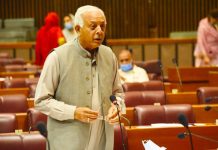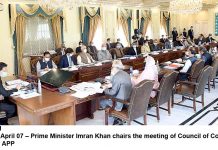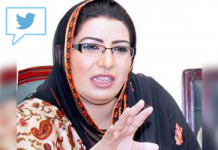Special Assistant to Prime Minister on Religious Affairs, Hafiz Muhammad Tahir Mehmood Ashrafi said on Sunday that Pakistan was progressing economically and the people would re-elect Prime Minister Imran Khan in next general elections due to his prudent policies. Addressing the Fazayel e Abubakar Siddique (RA) conference here at Muttahida Ulema Board Punjab Office, he said that progress in agriculture sector was evident of the government policies. Ashrafi said the government was well-aware of the problems of salaried class people in the prevailing circumstances, however efforts were being made to bring down inflation. He said that Imran Khan was not going anywhere. He said that caliphate system (Khilafat-e- Rashida) was a system of mutual consultation. He said that Pakistan’s system was already based on mutual consultation and decisions were made after mutual discussions, adding that everyone had to play a role for making the country, Madina like state in the real sense. Ashrafi said that Pegham-e-Pakistan was the document which was signed by a majority from all religious schools of thought, adding that everyone should follow it. Some forces wanted to create unrest in the country on the name of religion, however, security institutions of the country were aware of nefarious designs of such elements, he added. Several other scholars also addressed the conference.
متعلقہ مضامین
-
Eight Covid-19 cases reported among students in Faisalabad
-
PDM ‘third piece of axis of evil’: govt
-
Naik Saif Janjua remembered on his martyrdom anniversary
-
SC reserves verdict on MQM, PTI petitions against Sindh LG law
-
Lost in self desire
-
Pakistan, Kashmiris across world set to observe ‘Black Day’ today
-
Black Day Observed in Tank to express solidarity with Kashmiris
-
Jazz Islamabad office sealed over tax non-payment
-
Peshawar blast culprits will be taken to task: KP IG
-
‘US-India military pact to adversely affect strategic stability in region’
-
SHC awaits final inquiry report in plane crash case
-
‘US-India military pact to adversely affect strategic stability in region’













